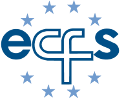Constitution and terms of reference
Interpretation
Cystic Fibrosis Nursing Special Interest Group is open to any registered nurse who cares on a regular basis, for people with Cystic Fibrosis
Membership
All nurses actively working in - or affiliated with - the care of individuals with Cystic Fibrosis. These nurses must be members of the ECFS.
Executive committee
The executive committee comprises one chair, a secretary, a treasurer and other members who come from countries across Europe and are elected at the ECFS NSiG annual meeting. There shall be no more than one representative from each country. The Committee shall comprise a maximum of six members.
Usually, an election is held annually, during the NSiG annual meeting, to elect new members. Each member will normally fulfil a term of office of three years.
Roles and responsibilities
All Committee members shall strive to fulfil the aims and objectives of the NSiG.
Additionally they will network with national groups to share information to and from the Committee.
Chair:
To chair the NSiG annual meeting. To lead the committee in matters of education, research and best clinical practice, planning and liaison with the ECFS and other disciplines. To review the progress of the committee and support developments. To present, in writing, an annual report to the committee for presentation at the Annual General Meeting of the NSiG.
Secretary:
To take notes and circulate minutes of each meeting to members of the Committee via email. The secretary will keep a database of members and email addresses. To review and update documentation as required. To report on any correspondence received. To post presentations given during the NSiG day on the website. To send out the annual newsletter and any additional communication to the members of the NSiG, which will also be posted on the website.
Treasurer:
To monitor the finances of the NSiG, in coordination with the ECFS, to ensure funds are available for the NSiG day and any grants that may be awarded.
4th/5th/6th members:
To support the Executive Committee. To stand in for Executive members if required. To take an active role in the work of the Committee.
Election:
IIn advance of the ECFS NSiG meeting, members will be asked for nominations to the executive committee should a vacancy exist. These can be self-nominations or nominations of another person. Each member may vote in person, either at the NSiG annual meeting or by email ahead of the meeting.
Ordinary Committee members shall have one vote each. The Chairperson or, in his/her absence, the Chairperson of the meeting, shall have a deciding vote should there be a tie.
Meetings of the Committee:
Annual General Meeting.
The chair of the NSiG shall attend the ECFS Annual General Meeting every calendar year during the conference and provide the annual report and financial statement from the committee.
Conference planning meetings
The Committee shall meet regularly throughout the year via an online video platform in order to plan the preconference meeting.
Special Meetings - A Special meeting shall be called by the Secretary if directed by the Chairperson or by the executive committee or members of the ECFS.
A Special General Meeting can be called in extraordinary circumstances as soon as practicable upon request, in writing/by e-mail, to the Secretary, from the Chairperson or any three persons comprising ordinary Committee officers or ECFS members.
Extraordinary circumstances: Examples:
Non continuance of Executive Committee members (Illness, unplanned absence, other),
A vote of no confidence by members
Attendance
Any CF clinical nurse specialist who is a member of the ECFS may attend a General Meeting or Special General Meeting.
Official Language
The constitution shall be available in English.
Dissolution
In the event of dissolution of the NSiG, all funds and properties remaining after payments of liabilities shall be conveyed to the ECFS.
Revised 23rd September 2022
